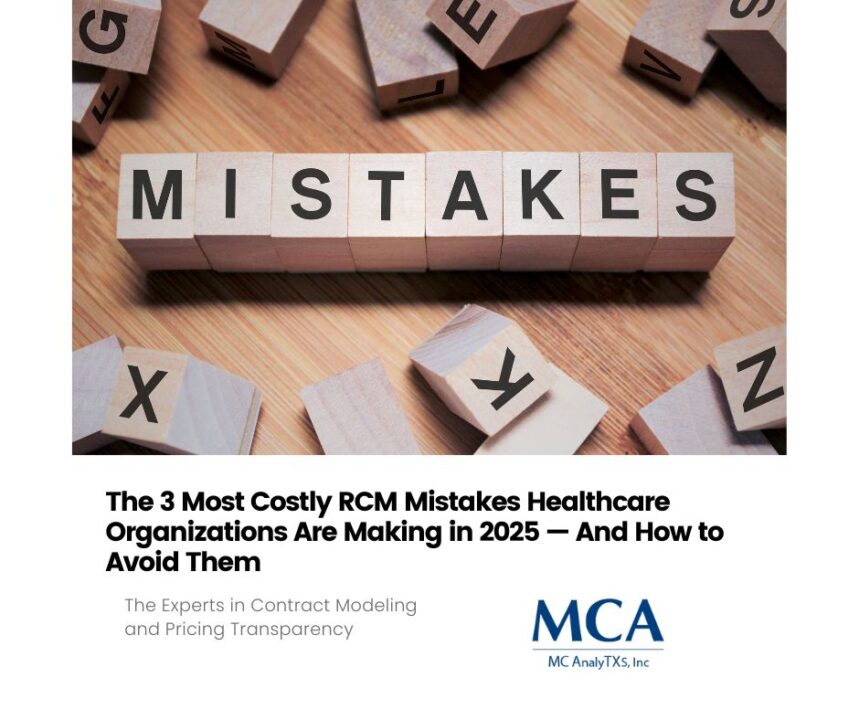
Why Billing Efficiency Shouldn’t Be Left Out of Healthcare Financial Improvement Plans
January 5, 2024
Enhancing RCM Teams to Protect the Bottom Line with Expert Support
January 10, 2024The healthcare industry is constantly evolving, and it’s up to healthcare providers to adapt to these changes to stay competitive. One area in which healthcare providers have started to see significant changes is in revenue cycle management (RCM). In recent years, healthcare providers have started to outsource their RCM functions more and more frequently. This trend is showing no signs of slowing down and for a good reason.
In this article, we’re going to take a closer look at why more and more healthcare systems are choosing to outsource their revenue cycle management functions. We’ll explore the benefits of outsourcing RCM, the challenges of in-house RCM management, and the advantages that outsourcing brings. So, let’s dive in.
Increased Complexity and Demands of RCM
Revenue cycle management involves a lot of intricate and complicated processes, all of which must be done right to keep the healthcare system running smoothly. These processes include medical billing, coding, claims processing, and patient registration, among others. The advent of new technologies and healthcare reforms has made RCM more complex and challenging to manage in-house, and healthcare systems have been struggling to keep up.
This complexity and increased demands have driven many healthcare providers to outsource their RCM functions. By outsourcing, they can leverage the expertise of experienced professionals who know how to handle complex billing and coding procedures. This way, healthcare providers can focus on their core activities, like providing quality patient care.
Difficulty in Finding Skilled Talent
One of the significant challenges of managing revenue cycle management in-house is finding skilled personnel to handle the processes. Hiring and maintaining an in-house RCM team is expensive and time-consuming, not to mention the hassle of recruiting, training, and keeping staff up-to-date with the latest technology and regulations.
Outsourcing can help healthcare systems overcome this challenge. A reliable outsourcing partner has not only the necessary experience but also the capacity to scale up their operations quickly and provide efficient solutions. By outsourcing RCM, healthcare providers can rely on their expertise and dedication to getting the job done accurately and efficiently.
Cost Savings
Outsourcing RCM can also help healthcare systems save money. By outsourcing, healthcare providers can cut costs related to hiring, training, and maintaining an in-house RCM team. This reduces labor costs and overhead expenses, allowing healthcare providers to redirect resources to more pressing needs.
Moreover, outsourcing also ensures that healthcare providers have access to the latest technology and processes. This means that outsourcing partners can handle RCM at a lower cost and a higher level of performance than in-house teams. So, outsourcing not only saves costs in the short term but also enables healthcare providers to achieve better long-term cost savings.
Enhanced Compliance and Risk Management
Compliance and regulatory aspects present many challenges for in-house RCM management. Keeping up with the changing laws, regulations, and guidelines is an ongoing and time-consuming process. Non-compliance with these rules can result in hefty penalties and legal liabilities, which can seriously impact a healthcare provider’s revenue and reputation.
Outsourcing RCM can help healthcare providers mitigate these risks. Outsourcing partners have experienced professionals and cutting-edge technology to ensure compliance with regulations and guidelines. Moreover, outsourcing partners work as an extension of the healthcare system and hence maintain full transparency and accountability.
Conclusion:
Outsourcing RCM is becoming the norm for many healthcare providers, and it is easy to see why. It helps healthcare providers overcome challenges related to increased complexity, finding skilled talent, cost savings, and risk management. By partnering with an experienced outsourcing partner, healthcare providers can stay up-to-date with the latest technologies and regulations, reduce costs, and keep their main focus on providing quality patient care. So, if you are a healthcare leader, it’s worth considering outsourcing RCM to an experienced partner in 2024 and beyond.
To learn more join our upcoming webinar Thursday, January 18th at 1 pm CST.





